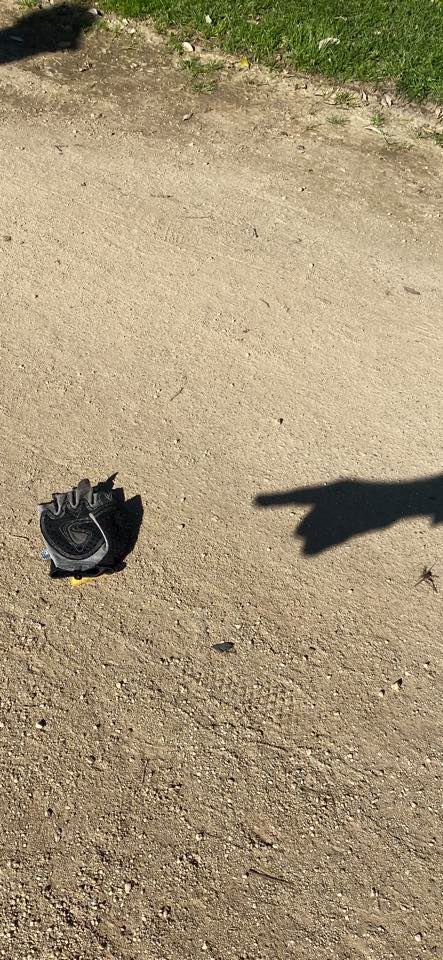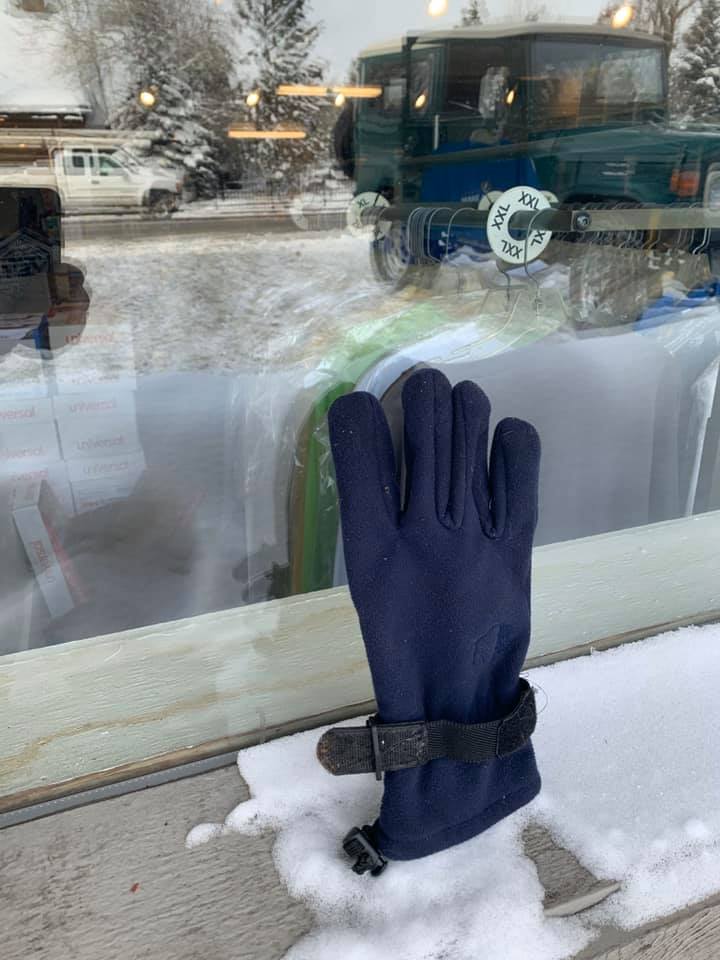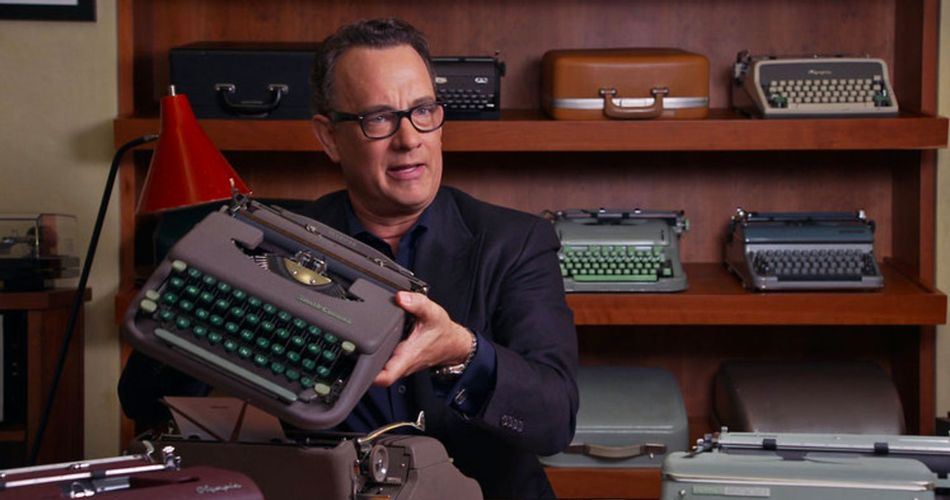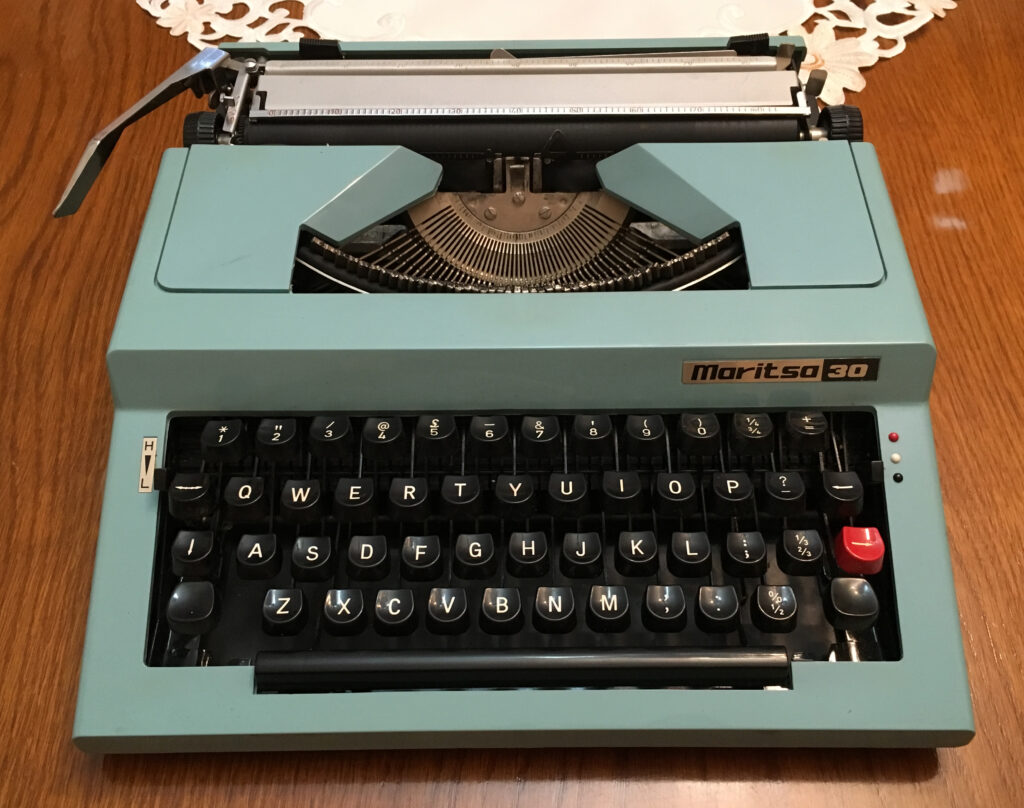Hi, Tom.
It is perhaps rudely familiar of me to address you by your first name. Those of us who are not actors tend to feel like we “know” those of you who perform for our amusement and distraction. This of course is absurd.
I’ve seen you take on the cloak of many people, and I shan’t pick a favorite, but I’m always impressed by the variety of the work you do. I suppose this has led me to feel a familiarity, as well as heartfelt respect.
On the other hand, we are Facebook friends, after all. I’ve liked several of your “found-glove” posts, while you’ve yet to react to a single one of my snarky posts or semi-macro photos of fire hydrants. But that’s okay. I know you’re busy: travelling, learning lines, answering the same question from the press for the bazillionth time, choosing future roles and the like.


A Facebook post by Tom Hanks.
I have seen in the media over the past few months that you’ve been shedding some stuff. The Airstream and some cars being among them.
And of course, there are numerous reports over the past few years of you gifting typewriters from your collection to individuals. Such gifts touch the heart and how can I argue against your generosity?

But those reports have gotten me to wondering, worrying to be honest, about the typewriters.
What jeopardy might they face in years to come?
Will they be dispersed?

Like you, I have a fondness for typewriters. This affinity has been with me for as long as I can remember. As a small person I watched my mom type on her Smith Corona portable electric that she had used in college.
The first thing I remember from that machine is the fragrance. Like a new Volkswagen of the ‘70s, it had (and continues to emit) a wonderful aroma. It generates a unique olfactory sensation that I cannot describe. It’s not metal, it’s not lubricant, it’s not ink from the ribbon. No, I feel it must be the vapor of the love that went into crafting the machine in some now-defunct factory of the late 1950s.
My grandmother also had a Smith Corona electric that she often typed letters on. As her arthritis worsened, she typed more and more.
When I was starting high school, my mom strongly encouraged me to take a typing class. Apart from having horrible penmanship, she argued that if I could master the keyboard, I’d always have a job.
Another family member recommended that if I had the choice, I should learn on a manual typewriter. Much like driving a stick-shift, it would be a skill that would serve me well.
I followed all of the advice and took up a seat behind a Royal manual typewriter in my high school’s typing class. We trained using the Century 21 method. It was hard work. My mind often went numb while doing the drills. But I persevered.
As my skills improved, I got pleasure from my ability to turn out crisp, clean, elegant copy.
I continue to be in awe of the typewriter. The mechanical complexity of even the most basic machine, especially considering the times some of these gems were created, is stunning.
Consider that when we type, we’re in close, almost intimate, contact with a hard piece of machinery: keys, springs, wires, cogs, wheels, motors. And yet when you get your hands on a good home row, it feels like you’ve put on a perfectly-fitting pair of socks, fresh from the dryer.
My wife and I still have our typewriters of old. I have my mom’s Smith Corona 210 that she used in college, as did I. My wife, who is from Romania, has her Bulgarian-made Maritsa 30. I’m drawn to them and appreciate them for their mechanical power, complexity and beauty.


You, to my knowledge, have perhaps the largest collection of typewriters in one place. Not because you have fame or relative fortune, but simply because you have the collection, I ask that you protect it.
You owe me nor the world nothing, of course. But I appreciate that however you’ve amassed the collection, that assemblage of hardware is important: as historical artifacts and as art that should be appreciated and preserved.
I can only imagine the space they must take up and I fear that as you re-asses the “things” in your life, you might consider breaking up the band, so to speak.
Please do not do that! Not for me, not for yourself, not for your children, but for the world. Please save the typewriters. Keep them together.
Maybe set aside an endowment for their care. Or bequeath them at the end of your earthly stay to a university of design or engineering, a museum – someplace that will love them. Somehow, please, I beg you, keep them all together and protected. Don’t disperse them.
If and when the time comes when they are no longer your children, please adopt them out as the family that they are – for the benefit of all.
Thank you for everything, Tom. Both for the entertainment that you’ve given us and for the very fact that you have brought attention to typewriters as the important players they are in our past and future.
Please follow these links for more about Tom Hanks’ love of typewriters.
Tom Hanks Gave His Corona Typewriter to a Kid Bullied Over Having the Name Corona: https://time.com/5826972/tom-hanks-typewriter-letter/
Many happy returns: Tom Hanks gives typewriter to Massachusetts family: https://www.cnn.com/2017/12/19/entertainment/tom-hanks-gives-typewriter-to-massachusetts-family/index.html
Tom Hanks gifted this Wellesley family a vintage typewriter: https://www.boston.com/news/local-news/2017/12/18/tom-hanks-gifted-this-wellesley-family-a-vintage-typewriter/
Artist receives thoughtful gift from Tom Hanks: https://abc7news.com/tom-hanks-gives-a-gift-typewriter-bay-area/1622726/
Tom Hanks Changes the Ribbon on a Typewriter: https://www.vanityfair.com/video/watch/tom-hanks-changes-the-ribbon-on-a-typewriter
